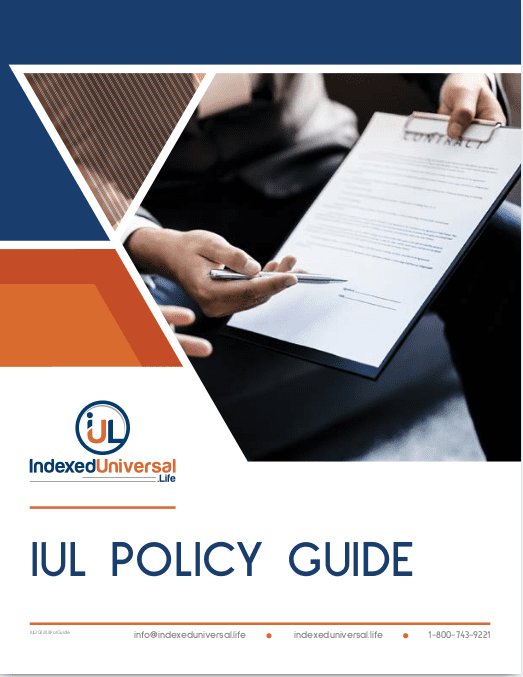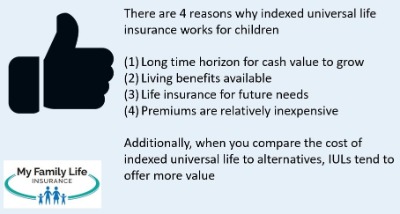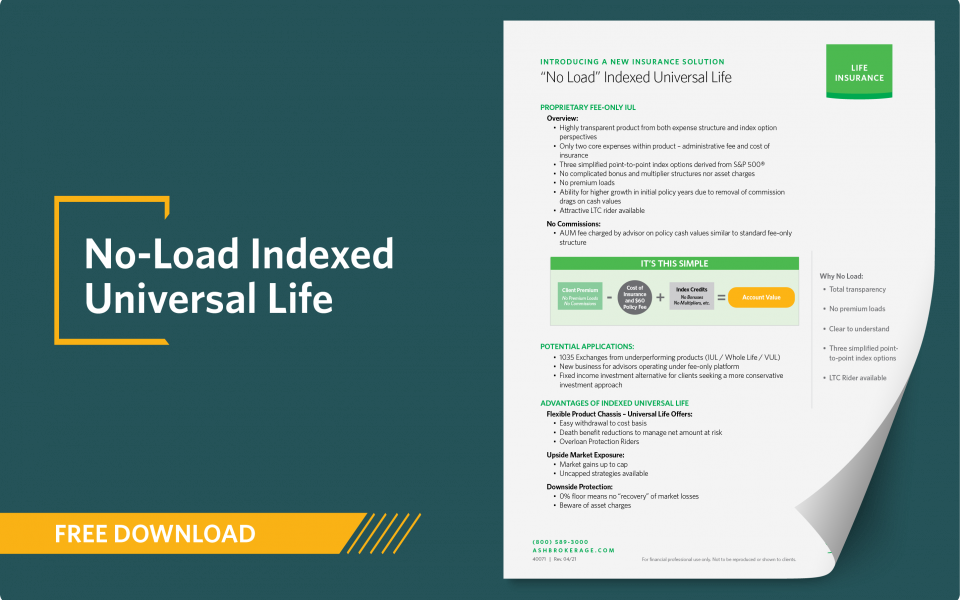All Categories
Featured
Table of Contents
Do they compare the IUL to something like the Vanguard Overall Stock Market Fund Admiral Shares with no load, a cost proportion (EMERGENCY ROOM) of 5 basis factors, a turn over ratio of 4.3%, and an exceptional tax-efficient record of circulations? No, they compare it to some awful proactively taken care of fund with an 8% load, a 2% EMERGENCY ROOM, an 80% turnover ratio, and an awful document of short-term resources gain distributions.
Shared funds commonly make annual taxable distributions to fund proprietors, even when the worth of their fund has actually dropped in worth. Shared funds not only require earnings coverage (and the resulting annual taxes) when the mutual fund is going up in worth, but can likewise impose income taxes in a year when the fund has actually decreased in value.
That's not just how shared funds function. You can tax-manage the fund, gathering losses and gains in order to lessen taxed distributions to the financiers, yet that isn't in some way mosting likely to transform the reported return of the fund. Only Bernie Madoff kinds can do that. IULs avoid myriad tax traps. The possession of common funds may need the shared fund owner to pay approximated taxes.

IULs are easy to position to make sure that, at the proprietor's fatality, the recipient is exempt to either income or inheritance tax. The exact same tax reduction strategies do not function nearly too with shared funds. There are numerous, typically expensive, tax obligation traps linked with the timed purchasing and marketing of mutual fund shares, traps that do not relate to indexed life insurance policy.
Possibilities aren't very high that you're going to undergo the AMT as a result of your shared fund distributions if you aren't without them. The rest of this one is half-truths at finest. While it is true that there is no earnings tax due to your heirs when they inherit the profits of your IUL policy, it is also real that there is no revenue tax obligation due to your successors when they acquire a common fund in a taxed account from you.
Best Indexed Universal Life Policies
The federal inheritance tax exception restriction is over $10 Million for a couple, and expanding every year with inflation. It's a non-issue for the substantial majority of physicians, much less the rest of America. There are much better ways to avoid estate tax problems than acquiring financial investments with low returns. Shared funds may create earnings taxation of Social Safety benefits.

The development within the IUL is tax-deferred and might be taken as tax obligation totally free income through fundings. The plan owner (vs. the mutual fund supervisor) is in control of his or her reportable earnings, hence allowing them to minimize and even get rid of the tax of their Social Safety benefits. This one is excellent.
Right here's one more minimal concern. It's true if you purchase a shared fund for claim $10 per share right before the distribution day, and it distributes a $0.50 distribution, you are after that mosting likely to owe tax obligations (probably 7-10 cents per share) despite the truth that you haven't yet had any gains.
In the end, it's actually concerning the after-tax return, not exactly how much you pay in tax obligations. You're additionally most likely going to have even more money after paying those taxes. The record-keeping requirements for having common funds are considerably extra intricate.
With an IUL, one's records are kept by the insurance coverage company, duplicates of annual declarations are sent by mail to the owner, and distributions (if any kind of) are amounted to and reported at year end. This is also sort of silly. Obviously you should maintain your tax records in instance of an audit.
Nationwide Yourlife Indexed Ul Accumulator
All you have to do is shove the paper into your tax obligation folder when it reveals up in the mail. Rarely a reason to get life insurance policy. It resembles this man has never ever bought a taxable account or something. Common funds are typically part of a decedent's probated estate.
On top of that, they undergo the hold-ups and expenditures of probate. The earnings of the IUL plan, on the other hand, is constantly a non-probate circulation that passes outside of probate straight to one's named beneficiaries, and is consequently exempt to one's posthumous lenders, undesirable public disclosure, or similar delays and expenses.
We covered this under # 7, but simply to wrap up, if you have a taxable shared fund account, you should place it in a revocable count on (and even easier, make use of the Transfer on Death classification) in order to stay clear of probate. Medicaid disqualification and lifetime revenue. An IUL can provide their proprietors with a stream of income for their whole lifetime, no matter for how long they live.

This is useful when arranging one's events, and converting possessions to income prior to an assisted living facility confinement. Common funds can not be converted in a similar manner, and are usually thought about countable Medicaid assets. This is an additional dumb one supporting that poor people (you understand, the ones that need Medicaid, a federal government program for the inadequate, to spend for their retirement home) must make use of IUL rather than common funds.
Pacific Life Indexed Universal Life
And life insurance policy looks dreadful when compared relatively versus a pension. Second, people who have cash to purchase IUL above and beyond their retirement accounts are mosting likely to have to be terrible at handling cash in order to ever before certify for Medicaid to pay for their assisted living home expenses.
Persistent and incurable disease cyclist. All plans will allow an owner's easy accessibility to cash from their policy, typically forgoing any type of abandonment fines when such people experience a major ailment, require at-home treatment, or end up being restricted to a retirement home. Common funds do not supply a similar waiver when contingent deferred sales costs still put on a shared fund account whose proprietor needs to offer some shares to money the prices of such a stay.
What's The Difference Between Universal Life And Whole Life Insurance
You get to pay more for that advantage (motorcyclist) with an insurance coverage policy. What a large amount! Indexed universal life insurance policy supplies survivor benefit to the beneficiaries of the IUL owners, and neither the owner nor the recipient can ever shed cash as a result of a down market. Common funds supply no such guarantees or death advantages of any type of kind.
Now, ask on your own, do you really need or desire a survivor benefit? I definitely do not require one after I get to monetary self-reliance. Do I desire one? I intend if it were affordable sufficient. Certainly, it isn't low-cost. Usually, a purchaser of life insurance coverage spends for real expense of the life insurance advantage, plus the prices of the policy, plus the revenues of the insurer.
Is Iul Good Investment
I'm not totally sure why Mr. Morais threw in the entire "you can not shed cash" again below as it was covered rather well in # 1. He simply wished to duplicate the most effective marketing point for these points I mean. Once more, you do not lose small bucks, yet you can lose actual bucks, as well as face major possibility price because of low returns.

An indexed universal life insurance policy policy owner may trade their plan for an entirely different plan without setting off revenue taxes. A shared fund proprietor can not move funds from one shared fund firm to one more without selling his shares at the former (thus triggering a taxable occasion), and buying new shares at the last, frequently subject to sales charges at both.
While it holds true that you can exchange one insurance plan for one more, the factor that individuals do this is that the first one is such a dreadful policy that even after buying a new one and undergoing the very early, negative return years, you'll still come out ahead. If they were offered the ideal plan the first time, they should not have any wish to ever exchange it and experience the very early, unfavorable return years once more.
Latest Posts
7702 Iul
Universal Life Guaranteed Death Benefit
Transamerica Index Universal Life Insurance